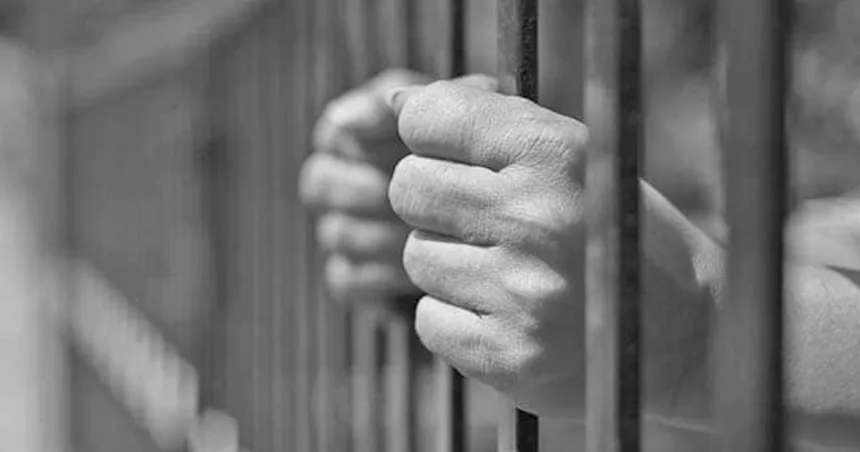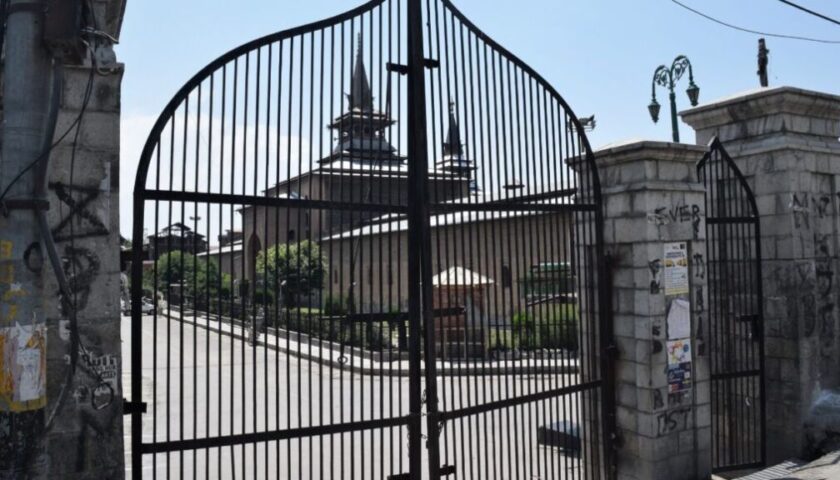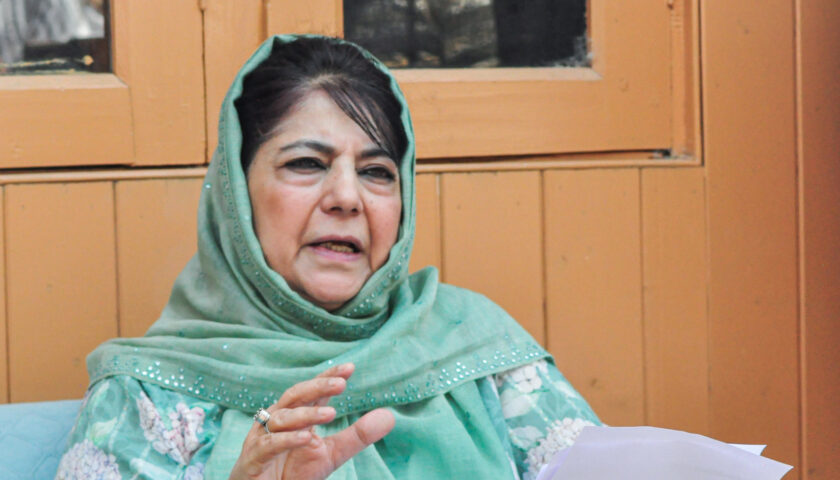Justice After Two Decades
By: Javid Amin | 31 Aug 2025
In a landmark judgment that has reignited conversations about justice, accountability, and the long shadow of Kashmir’s turbulent years, the Jammu & Kashmir High Court has sentenced Ghulam Rasool Wani, a former Station House Officer (SHO) of Sogam, to life imprisonment.
His crime was not a matter of negligence or oversight—it was active collusion. The court found that Wani aided a fidayeen (suicide attacker) from Pakistan-based militant outfit Jaish-e-Mohammad in carrying out a devastating assault in Kupwara Chowk on May 12, 2003.
That attack claimed the lives of two CRPF jawans and left six others injured. The militant himself, identified as Mohammad Ibrahim alias Khalil-Ullah, also died during the assault.
The conviction, coming 22 years later, is not just about punishing one man. It is a symbolic moment for Kashmir, underlining that even in the fog of insurgency, those who betray public trust—especially from within the system—will eventually face justice.
Case Background: The 2003 Kupwara Fidayeen Attack
The early 2000s marked one of the most violent phases of militancy in Kashmir. Fidayeen (suicide) attacks—an imported tactic from across the border—had become a recurring nightmare for security forces.
On May 12, 2003, Kupwara town, usually a bustling hub in North Kashmir, was thrown into chaos. At around 11:15 a.m., a gunman disguised in a police uniform appeared near the State Bank of India branch at Kupwara Chowk.
Eyewitnesses recall the sudden burst of gunfire. The attacker opened indiscriminate fire on a CRPF patrol party stationed in the area.
Two personnel—Constable B. Prashad and Constable B. Ramaiah—were killed instantly. Six others sustained serious injuries.
As panic gripped the crowded town square, the gunman lobbed a grenade. But fate turned against him: the explosive rebounded and detonated nearby, killing him on the spot. His head was badly disfigured in the blast, making immediate identification difficult.
Later, intelligence confirmed his identity: Mohammad Ibrahim alias Khalil-Ullah, a Pakistani militant affiliated with Jaish-e-Mohammad.
At first, it seemed like another tragic but “ordinary” militant strike in a valley long used to violence. But the investigation revealed something far more sinister—an insider hand.
The Role of the Ex-SHO: Collusion Unmasked
Investigators soon pieced together the chilling truth: the militant had not sneaked into Kupwara on his own. He had been escorted and facilitated by none other than the local SHO, Ghulam Rasool Wani.
The High Court judgment reveals the following sequence:
-
Wani provided the militant with a police uniform, ensuring he would not be suspected en route.
-
He transported Ibrahim in an official police vehicle from Sogam Police Station to the attack site in Kupwara Chowk.
-
By doing so, he gave Ibrahim unchallenged access to a high-security area, essentially weaponizing his official authority in favor of a terror outfit.
The court compared Wani’s action to “firing a loaded cannon into a crowd.” The intention, it said, was unambiguous: he wanted the attack to succeed, knowing it would cause death and destruction.
This revelation shocked many—even in a conflict zone where allegations of collusion have often surfaced. For an SHO, sworn to protect citizens, to enable a suicide attacker struck at the very heart of institutional trust.
The Sessions Court Acquittal of 2011: A Missed Chance
In 2011, nearly eight years after the attack, a Sessions Court acquitted Wani of all charges.
The trial court ruled there was insufficient evidence to prove his direct involvement. This decision drew quiet skepticism among security officials but did not cause widespread uproar—partly because militancy trials in the Valley were often messy, clouded by intimidation, lack of witnesses, and procedural flaws.
For the families of the slain CRPF men, it was a bitter pill. They were left with the impression that justice had been denied.
The acquittal, however, did not close the case. The prosecution filed an appeal, which wound its way slowly through the system for years, until the High Court finally delivered its verdict in August 2025.
The High Court Verdict: Life Imprisonment for Wani
The division bench of Justices Sanjeev Kumar and Sanjay Parihar took a markedly different view from the Sessions Court.
After re-examining the evidence, witness accounts, and investigative material, the bench concluded that Wani’s acquittal had been “perverse and erroneous.”
Key findings included:
-
The militant’s presence in Kupwara in police uniform could only be explained through insider facilitation.
-
Witness testimonies and circumstantial evidence consistently pointed to Wani’s role in transporting Ibrahim.
-
The Sessions Court had failed to properly weigh critical evidence, leading to a miscarriage of justice.
The bench declared Wani guilty of criminal conspiracy, abetment of terrorism, and murder. His punishment: life imprisonment.
In delivering the sentence, the court used sharp language:
“The accused’s act was not a lapse in judgment but a conscious betrayal. By aiding a fidayeen, he chose to side with terror rather than law. Such conduct is akin to firing a loaded cannon into a crowd—its intent is only death.”
The Human Cost: Remembering the Victims
Lost in the legal jargon are the human lives that shaped this case.
-
Constable B. Prashad and Constable B. Ramaiah, both members of the CRPF, never returned home that day. They were among countless security personnel who bore the brunt of Kashmir’s violent insurgency years.
-
Six others, whose names rarely make it to headlines, carried the scars of that morning—both physical and psychological.
For their families, the High Court judgment is more than a legal outcome. It is delayed recognition that their loss mattered, that justice, even if late, was not denied forever.
The Co-Accused and Militant Involved
The case had multiple strands:
-
Abdul Ahad Rather, co-accused alongside Wani, was acquitted by the High Court for lack of sufficient evidence.
-
Mohammad Ibrahim alias Khalil-Ullah, the fidayeen attacker, died during the assault itself when his grenade malfunctioned.
-
With his death, proceedings against him were abated, leaving Wani as the central figure of accountability.
Judicial Significance: A Message Against Insider Betrayal
This case holds special significance because it addresses a rare but devastating form of betrayal—collusion from within the system.
When those entrusted with law enforcement actively collaborate with militants, the consequences can be catastrophic. The High Court’s strong stance sends out a message:
-
No one is above the law, not even those wearing the uniform.
-
Delayed justice is still justice—the passage of 22 years does not dilute accountability.
-
Institutions must learn from such cases to ensure stricter oversight, transparency, and mechanisms against insider threats.
Public and Security Forces Reaction
The verdict has generated a mix of relief and reflection.
For security forces, it is vindication that their suspicions about insider betrayal were valid, and that the justice system has finally acted.
Among civilians, the case rekindles painful memories of the early 2000s, when militancy and counter-militancy often blurred lines of loyalty and fear. Yet, many also view the judgment as a step towards healing and accountability.
Human rights advocates note that while justice has been served here, thousands of cases from that era remain unresolved, awaiting closure.
Why Justice After 22 Years Still Matters
Some may argue: what use is a conviction two decades later? But for legal scholars, victims’ families, and the broader community, the answer is clear: justice has no expiry date.
-
For the families of CRPF constables Prashad and Ramaiah, the verdict acknowledges their sacrifice.
-
For institutions, it underscores that betrayal within the ranks cannot be forgotten or brushed aside.
-
For Kashmir, it serves as a reminder that the insurgency years produced wounds still healing—but accountability is part of that healing.
Conclusion: Lessons from the Kupwara Case
The 2003 Kupwara fidayeen attack is now part of Kashmir’s long history of conflict, but the 2025 High Court verdict ensures it is also remembered as a story of justice delivered, even if late.
Ghulam Rasool Wani, once a custodian of law, will now spend the rest of his life behind bars for betraying the very oath he swore.
The judgment resonates beyond one case. It highlights:
-
The importance of institutional integrity
-
The perils of insider collusion
-
The enduring need for accountability in conflict zones
For Kashmir, still navigating its complex realities, such rulings are not just about punishment—they are about rebuilding trust in justice, governance, and the rule of law.




